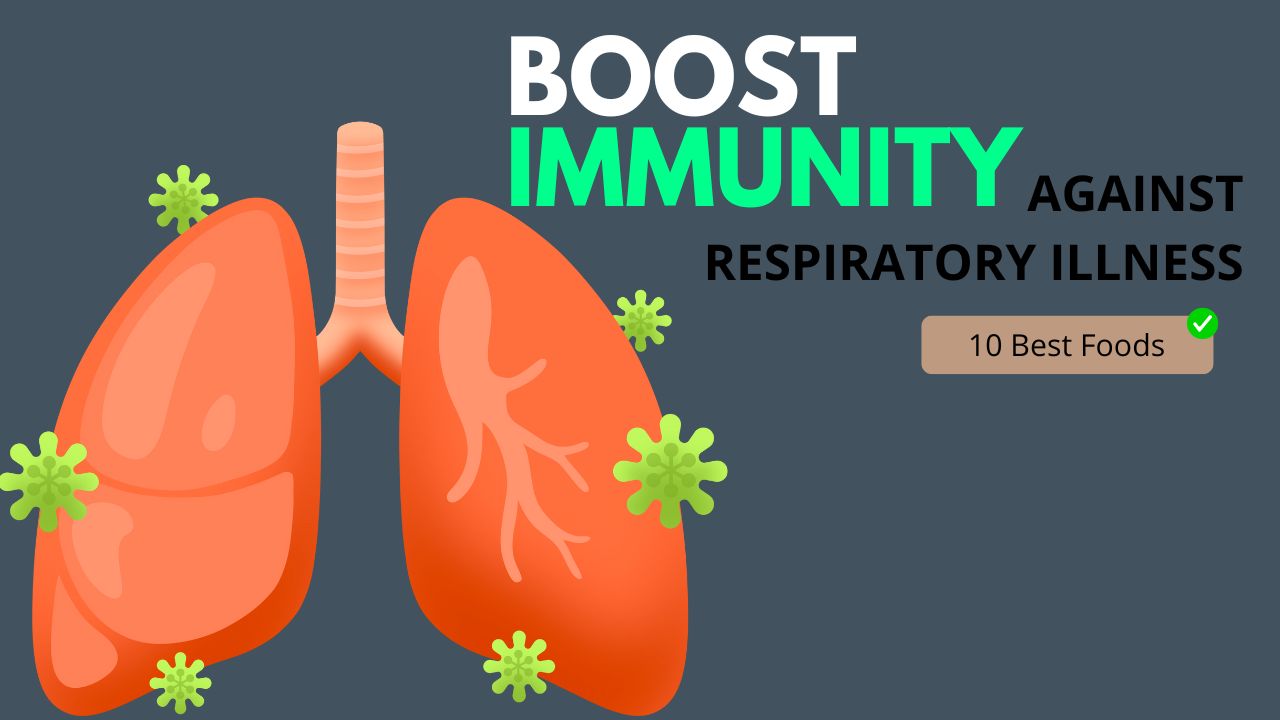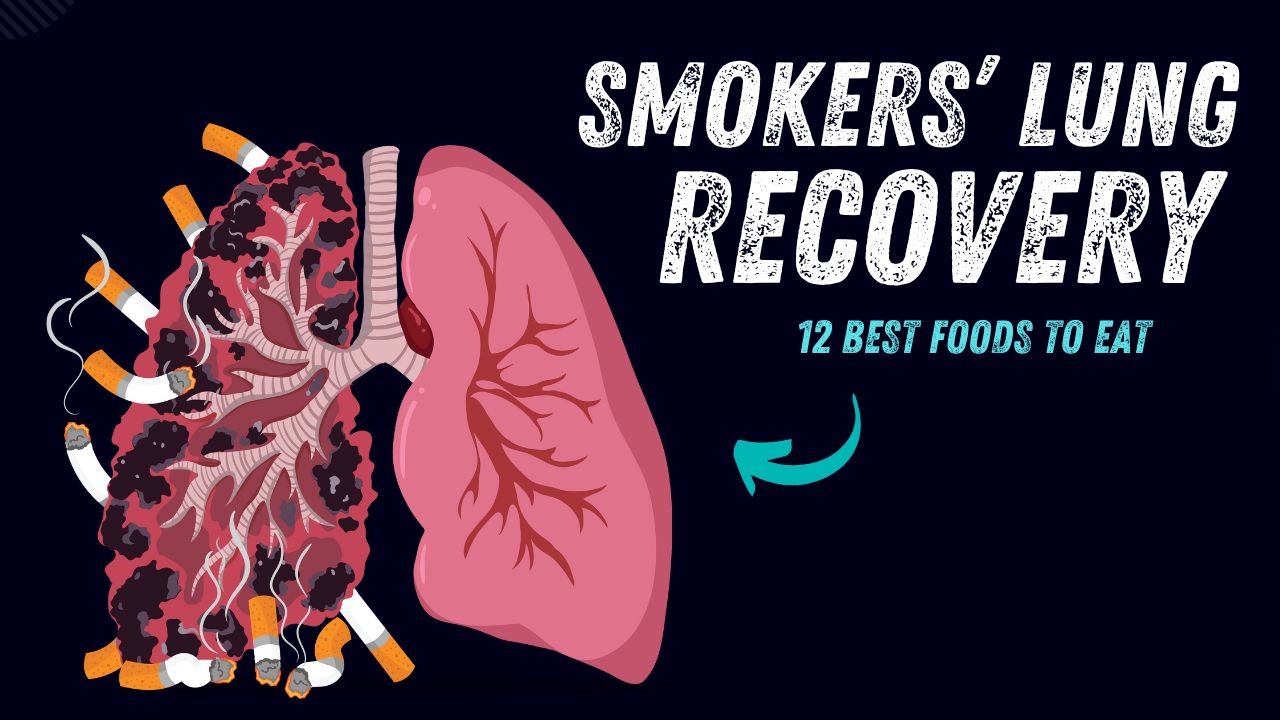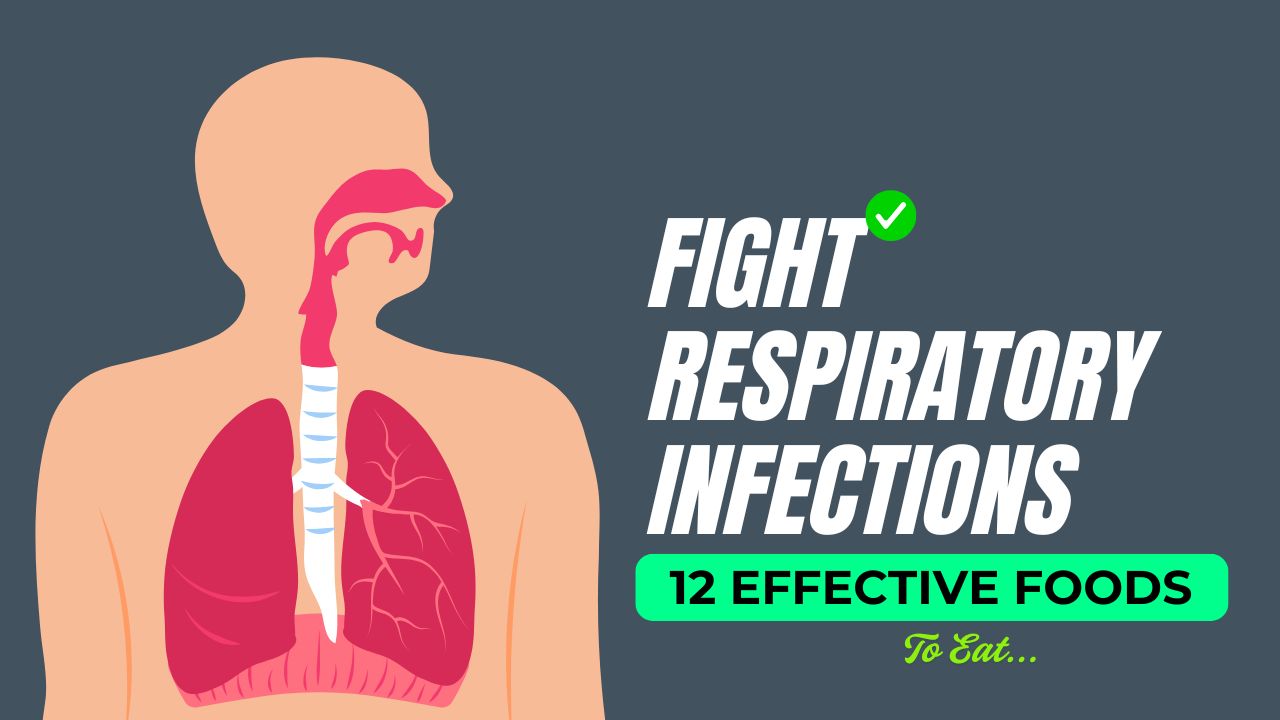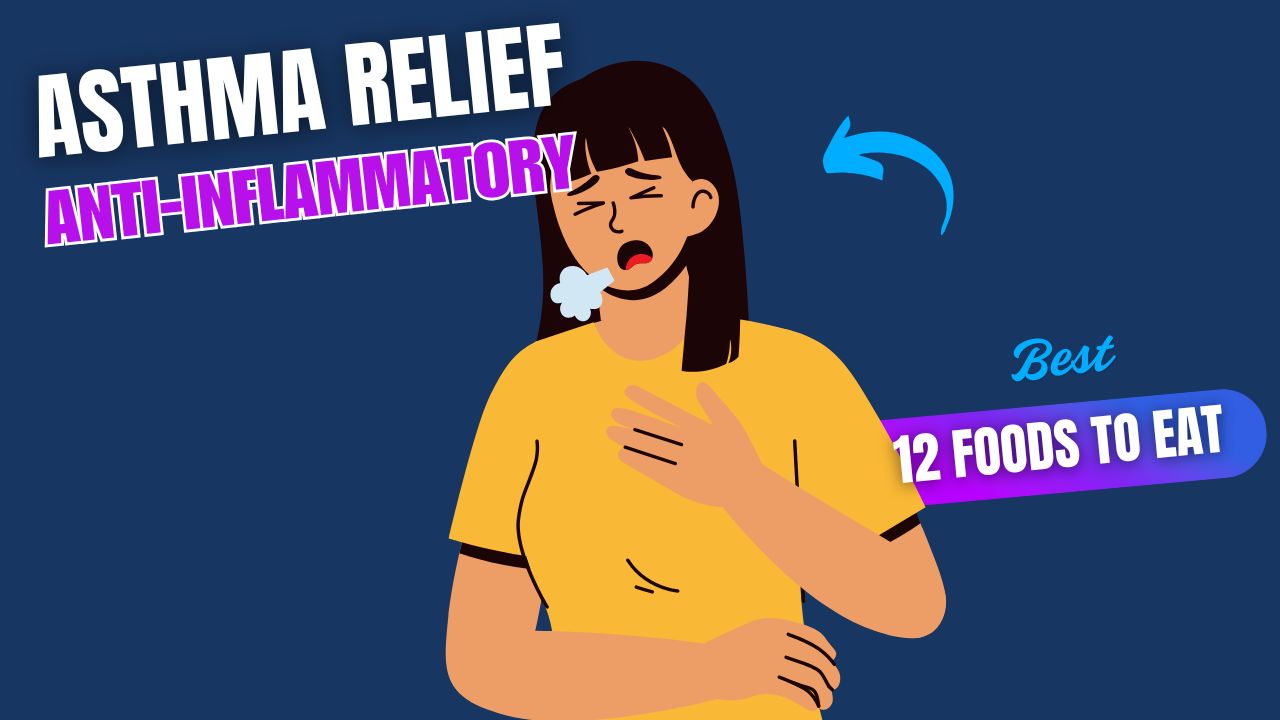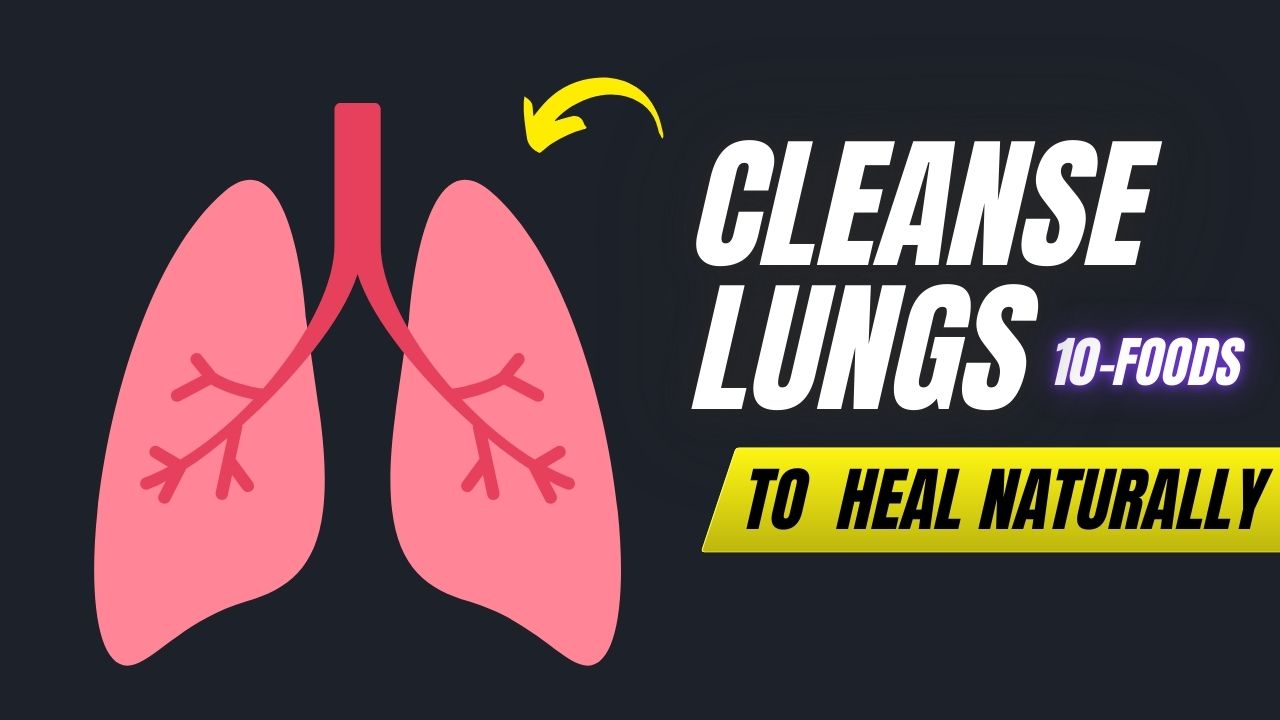Did you know that more than 300 million people worldwide suffer from asthma, and the numbers continue to rise every year?
Asthma is a chronic respiratory condition that inflames and narrows the airways, making it difficult to breathe. While medication is often necessary, research shows that diet plays a powerful role in reducing inflammation and easing asthma symptoms.
The right foods can help calm airway inflammation, boost lung function, and even reduce the frequency of asthma attacks. On the other hand, processed, sugary, and fried foods may worsen symptoms by increasing inflammation in the body.
In this article, we’ll explore 12 powerful anti-inflammatory foods that may provide natural asthma relief. For each food, you’ll learn:
- The best ways to eat or use it.
- Who should eat it and who should avoid it.
- Storage and buying tips.
- Do’s & Don’ts for maximizing benefits.
- Possible side effects (if any).
Let’s dive in and discover how simple food choices can make breathing easier and life healthier.
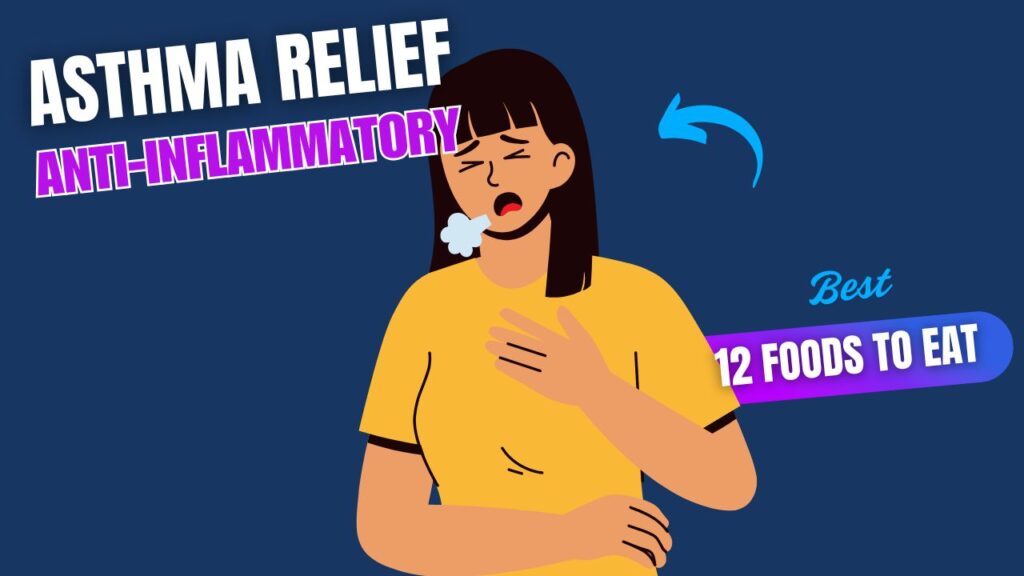
Table of Contents
12 Best Foods For Asthma Relief
1. Fatty Fish (Salmon, Mackerel, Sardines)
Omega-3 fatty acids in fatty fish are well-known for their anti-inflammatory properties. They help reduce airway swelling and improve overall lung function.
Best Ways to Eat or Use It
- Grilled, baked, or steamed.
- Add salmon to salads or sandwiches.
- Pair with lemon and herbs for flavor without heavy sauces.
Who Should Eat / Avoid
- Good for: Adults, athletes, and those with high inflammation.
- Avoid if: Allergic to fish or have high mercury sensitivity (especially pregnant women with certain fish).
Storage & Buying Tips
- Choose fresh, wild-caught fish when possible.
- Store in the coldest part of the fridge and consume within 2 days.
- Freeze for longer storage.
Do’s & Don’ts
✅ Do: Grill or steam to preserve nutrients.
❌ Don’t: Fry in heavy oils.
Possible Side Effects
- Overconsumption may lead to excess mercury intake.
2. Ginger
Ginger has natural anti-inflammatory and antioxidant compounds that can relax airway muscles, making breathing easier.
Best Ways to Eat or Use It
- Fresh ginger tea.
- Add grated ginger to stir-fries or soups.
- Use ginger powder in smoothies or curries.
Who Should Eat / Avoid
- Good for: People with respiratory issues, digestive problems, or inflammation.
- Avoid if: You are on blood-thinning medications.
Storage & Buying Tips
- Pick firm, fresh roots without wrinkles.
- Store in a cool, dry place or refrigerate.
- Freeze grated ginger for convenience.
Do’s & Don’ts
✅ Do: Use fresh ginger for maximum potency.
❌ Don’t: Consume in excessive amounts (can cause heartburn).
Possible Side Effects
- May cause stomach upset if taken in large doses.
3. Turmeric
Turmeric contains curcumin, a compound known for its strong anti-inflammatory properties that can reduce airway swelling.
Best Ways to Eat or Use It
- Golden milk with turmeric and black pepper.
- Add to curries, soups, or roasted vegetables.
- Take as a supplement (after medical advice).
Who Should Eat / Avoid
- Good for: People with chronic inflammation.
- Avoid if: Pregnant women in high doses, or those with gallbladder issues.
Storage & Buying Tips
- Store turmeric powder in an airtight container away from sunlight.
- Fresh turmeric root should be refrigerated.
Do’s & Don’ts
✅ Do: Pair with black pepper for better curcumin absorption.
❌ Don’t: Rely on turmeric alone as a treatment.
Possible Side Effects
- Excess use may cause stomach irritation.
4. Apples
“An apple a day keeps the doctor away”—especially true for asthma patients. Apples contain flavonoids and antioxidants that support lung health.
Best Ways to Eat or Use It
- Fresh, raw apples as snacks.
- Blend into smoothies.
- Add to salads or oatmeal.
Who Should Eat / Avoid
- Good for: Kids, adults, and pregnant women.
- Avoid if: You have apple allergies (rare but possible).
Storage & Buying Tips
- Choose firm apples without bruises.
- Store in the refrigerator to maintain freshness.
Do’s & Don’ts
✅ Do: Eat with skin for maximum antioxidants.
❌ Don’t: Consume too much apple juice (high sugar).
Possible Side Effects
- Excessive juice consumption may cause weight gain due to sugar.
5. Leafy Greens (Spinach, Kale, Swiss Chard)
Leafy greens are packed with magnesium, vitamin C, and antioxidants, which help reduce inflammation and relax airway muscles.
Best Ways to Eat or Use It
- Smoothies, salads, or stir-fries.
- Lightly steam to preserve nutrients.
Who Should Eat / Avoid
- Good for: Asthma patients, weight-loss seekers.
- Avoid if: You have kidney stones (due to oxalates).
Storage & Buying Tips
- Store unwashed in the fridge with paper towels to absorb moisture.
Do’s & Don’ts
✅ Do: Wash thoroughly before use.
❌ Don’t: Overcook (destroys vitamin C).
Possible Side Effects
- May cause bloating in some individuals.
6. Garlic
Garlic is a natural anti-inflammatory that may reduce airway inflammation and improve immunity.
Best Ways to Eat or Use It
- Crush raw garlic into salads.
- Add to soups, stir-fries, or roasted vegetables.
Who Should Eat / Avoid
- Good for: Immune-boosting and anti-inflammatory needs.
- Avoid if: You have stomach ulcers or garlic sensitivity.
Storage & Buying Tips
- Store in a cool, dark place.
- Avoid refrigerating whole bulbs.
Do’s & Don’ts
✅ Do: Use raw for maximum benefits.
❌ Don’t: Burn garlic while cooking.
Possible Side Effects
- May cause bad breath or digestive discomfort.
7. Berries (Blueberries, Strawberries, Raspberries)
Berries are rich in antioxidants, vitamin C, and anthocyanins, which reduce airway inflammation.
Best Ways to Eat or Use It
- Fresh or frozen in smoothies.
- Add to yogurt or oatmeal.
Who Should Eat / Avoid
- Good for: Kids, elderly, athletes.
- Avoid if: You have berry allergies.
Storage & Buying Tips
- Refrigerate and consume within 2–3 days.
- Freeze to extend shelf life.
Do’s & Don’ts
✅ Do: Wash before eating.
❌ Don’t: Leave at room temperature for long.
Possible Side Effects
- Rarely, may cause allergic reactions.
8. Olive Oil
A staple of the Mediterranean diet, olive oil is full of healthy fats and antioxidants that lower inflammation.
Best Ways to Eat or Use It
- Drizzle over salads.
- Use as a cooking oil at low-medium heat.
Who Should Eat / Avoid
- Good for: Everyone except those with fat restrictions.
- Avoid if: You are on very low-fat diets.
Storage & Buying Tips
- Store in a dark glass bottle away from sunlight.
Do’s & Don’ts
✅ Do: Use extra-virgin olive oil for the best benefits.
❌ Don’t: Use for deep frying.
Possible Side Effects
- High-calorie content may contribute to weight gain if overused.
9. Bananas
Bananas contain potassium, which helps lung function and may reduce wheezing in asthma patients.
Best Ways to Eat or Use It
- Eat raw as a snack.
- Blend into smoothies.
- Use in oatmeal or baked goods.
Who Should Eat / Avoid
- Good for: Kids, athletes, and pregnant women.
- Avoid if: You have kidney disease and need low potassium intake.
Storage & Buying Tips
- Store at room temperature until ripe, then refrigerate.
Do’s & Don’ts
✅ Do: Eat when ripe for better digestion.
❌ Don’t: Eat too many at once.
Possible Side Effects
- May cause constipation in some people.
10. Tomatoes
Tomatoes are rich in lycopene and vitamin C, which reduce airway inflammation and support lung health.
Best Ways to Eat or Use It
- Eat raw in salads.
- Cook with olive oil for better lycopene absorption.
Who Should Eat / Avoid
- Good for: Asthma patients, heart health.
- Avoid if: You have acid reflux.
Storage & Buying Tips
- Store at room temperature until ripe.
- Refrigerate only after fully ripened.
Do’s & Don’ts
✅ Do: Pair with healthy fats for nutrient absorption.
❌ Don’t: Store unripe tomatoes in the fridge.
Possible Side Effects
- Can worsen acid reflux.
11. Beans and Lentils
Packed with fiber, magnesium, and plant-based protein, beans support lung function and reduce inflammation.
Best Ways to Eat or Use It
- Soups, stews, or salads.
- Use as a meat substitute in meals.
Who Should Eat / Avoid
- Good for: Vegans, vegetarians, and heart health.
- Avoid if: You have digestive issues like IBS.
Storage & Buying Tips
- Store dried beans in airtight containers.
- Refrigerate cooked beans for up to 3 days.
Do’s & Don’ts
✅ Do: Soak beans before cooking.
❌ Don’t: Eat undercooked beans (can be toxic).
Possible Side Effects
- May cause bloating or gas.
12. Green Tea
Green tea is rich in antioxidants and theophylline, a compound that relaxes the airways.
Best Ways to Eat or Use It
- Drink hot or cold green tea.
- Add lemon for extra antioxidants.
Who Should Eat / Avoid
- Good for: Adults, weight-loss seekers.
- Avoid if: Sensitive to caffeine or pregnant (limit intake).
Storage & Buying Tips
- Store tea leaves in airtight containers.
- Keep away from moisture.
Do’s & Don’ts
✅ Do: Brew for 2–3 minutes to preserve antioxidants.
❌ Don’t: Add too much sugar.
Possible Side Effects
- Excess caffeine may cause insomnia or jitteriness.
Conclusion
Asthma can feel overwhelming, but small dietary changes can make a big difference. By adding these 12 anti-inflammatory foods—such as fatty fish, ginger, turmeric, apples, leafy greens, garlic, berries, olive oil, bananas, tomatoes, beans, and green tea—you can help reduce airway inflammation, strengthen your lungs, and support overall health.
The best part? These foods are not only beneficial for asthma relief but also improve heart health, immunity, and energy levels.
Start today: add one or two of these foods to your next meal and notice the difference over time. Breathing easier might just begin with what’s on your plate.
What’s your favorite way to include these foods in your meals? Share your recipe or tip in the comments below!
Frequently Asked Questions (FAQs)
Can diet really help with asthma relief?
Yes. While diet cannot cure asthma, certain anti-inflammatory foods can help reduce airway inflammation, improve lung function, and minimize the frequency of asthma attacks. A balanced diet supports overall respiratory health.
Which foods should asthma patients avoid?
Asthma patients should limit processed foods, fried foods, excessive sugar, and artificial additives. Common triggers may include sulfites (in dried fruits, wine, and packaged foods) and dairy in some individuals.
Are there drinks that help with asthma?
Yes. Green tea, warm ginger tea, and turmeric milk are beneficial for reducing inflammation. Staying hydrated with water also helps keep airways moist and reduces irritation.
Can children with asthma benefit from these foods?
Absolutely. Many foods listed, such as apples, bananas, leafy greens, and berries, are safe and healthy for children. However, always introduce new foods slowly and monitor for allergies.
How quickly can dietary changes improve asthma symptoms?
Results vary by individual. Some people may notice improvements in breathing and reduced flare-ups within a few weeks of consistent dietary changes, while for others it may take longer.
Is it safe to take turmeric or ginger supplements for asthma?
Supplements can be helpful but should only be taken after consulting a doctor, especially if you are on medication, pregnant, or have existing health conditions.
Can weight loss improve asthma symptoms?
Yes. Being overweight can put extra pressure on the lungs and worsen asthma. A diet rich in anti-inflammatory foods can aid in healthy weight management and better lung function.
Do all asthma patients react the same way to foods?
No. Food sensitivities vary. What benefits one person may not suit another. It’s important to track your diet and symptoms, and work with a healthcare provider for personalized guidance.
